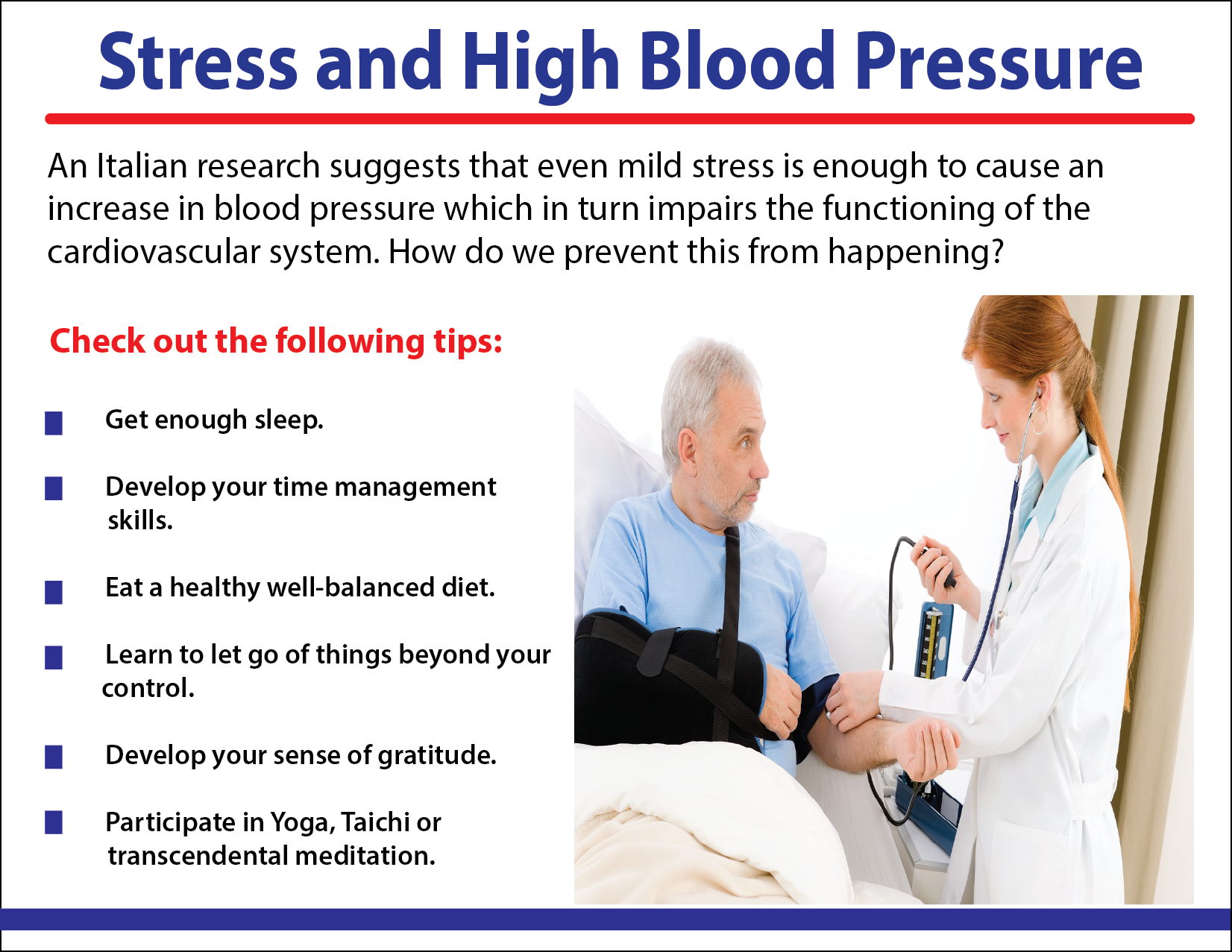Although hypertension or high blood pressure can be caused by many factors, there is no doubt that the effects of stress on a person’s blood pressure have become an increasingly important topic of research and study. One study published in the National Institutes of Health suggests that stress doesn’t directly cause hypertension but it can have a significant impact on its development.
Psychological Stress Affects Blood Pressure
Studies conducted on students reveal that their heart rate and blood pressure are higher during exam days. The autonomic assessment is done using a computerized analysis of a person’s cardiovascular variability through an electrocardiogram. It includes analyzing the students’ responses to the psychological questionnaires given to them, along with the laboratory analysis of their saliva.
The levels of cytokines released and hormone cortisol being produced by the body are also measured through their saliva samples. The amount of proteins produced by the immune system when the body is in a stressful situation is also measured and included in the autonomic assessment.
The results reveal that the students’ heart rate and blood pressure are higher during their exam days than during vacation days. This convincingly shows that psychological stress is a large factor in both heart and respiratory health.
Continuous Stress Can Be Dangerous
Stress can make a person’s blood pressure temporarily exceed normal levels. When the nervous system has been stimulated, the production of vasoconstricting hormones will rise thereby resulting in high blood pressure. Causes of stress and the degree of reaction to it will vary from person to person.
As with all stress-related responses the temporary increase in blood pressure is not usually a problem. However, health issues occur when stress hormones are not dissipated and remain in the system due to chronic stress, causing the patient’s resting pulse rate and blood pressure to be persistently and dangerously elevated.



How Reaction to Stress Can Lead to Hypertension
Even if actual stress isn’t the direct cause of a person’s high blood pressure, the way the person experiencing that stress processes and reacts to it can contribute to the development of high blood pressure. For example, many people are in the habit of eating comfort foods in order to cope with stress.
These comfort foods are typically not nutritious. They are usually high in sugar, salt, and additives that further increase the risk of hypertension and other health risks. Stress not only leads to emotional eating. It also changes a person’s food preferences. This is why stressed individuals have increased tendencies to choose sugary food and drinks along with processed foods that are high in sodium content.
Stress Can Cause Persistent Food Cravings
During stress, the brain’s hypothalamus produces a hormone that is known to temporarily suppress appetite. In times of stress, this hormone will signal the adrenal glands to produce more epinephrine which revs up the body’s fight or flight response. This includes putting craving for food on hold.
If stress does not let up, the adrenal glands will start producing a different hormone called cortisol that increases an individual’s appetite. Normally, cortisol levels go down once a stressful event is gone. However, if stress becomes chronic the body’s fight or flight response will also refuse to turn off resulting in persistent food cravings.

